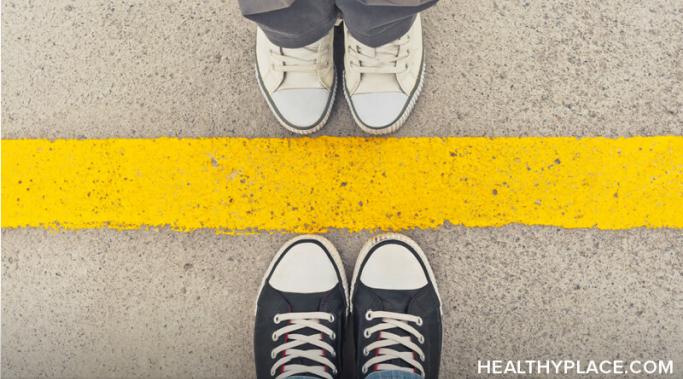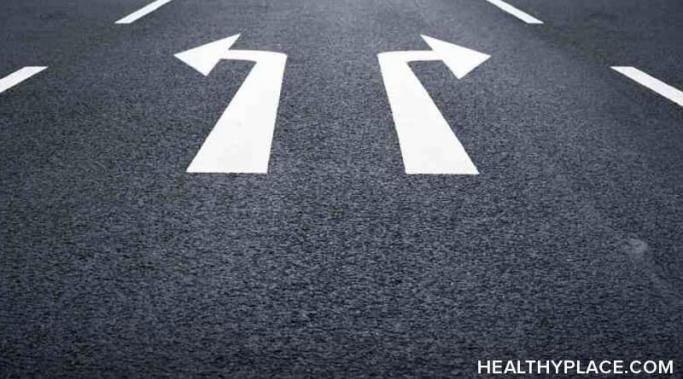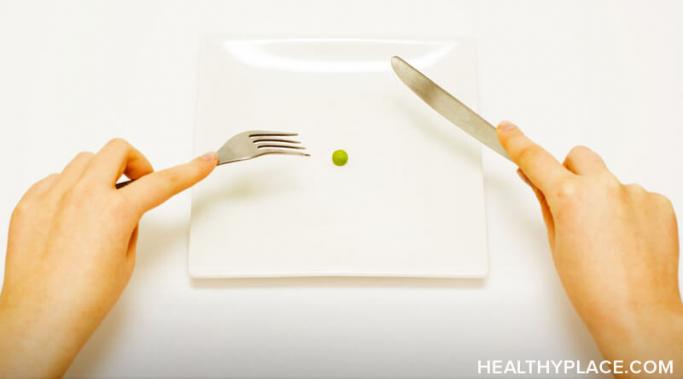In my own experience, boundaries are frequently talked about in the mental health community as pillars of self-care, but all too often, it's unclear how to create and reinforce those healthy boundaries. I define boundaries as an instruction manual for which behavioral dynamics, communication habits, and interpersonal treatment I either will or won't tolerate in my relationships—and life overall.
Eating Disorders Treatment
In just a couple of days, I will turn 30. To those who have spent more time on this earth than I have, this might not seem like such an extraordinary milestone, but 10 years ago, I never imagined that I would be alive to see my 20th birthday—let alone my 30th. That version of me felt hopelessly convicted to a life sentence of anorexia.
When I walked into a residential treatment center at the age of 19, I saw myself as anorexic. Flash forward almost 10 years later, and I still identified as an anorexic in recovery. This descriptor used to roll off my tongue as if on instinct—it felt purely automatic to view the illness in terms of who I had become, rather than a diagnosis I could heal from. But as I'm about to turn 30 in just a couple of weeks, I have chosen to shed this label once and for all. I no longer call myself anorexic, and here is why I am making that intentional choice from now on.
What does Pride Month mean to me in eating disorder recovery? That's a question I have explored intently during the past year. This is a vulnerable article for me to write because I have not spoken about it publicly until now, and it requires putting myself out there in a raw, exposed way. But since I am passionate about destigmatization—both in mental health and other sociocultural spheres—I think it could be meaningful to share this facet of my own personal identity, which has also become central to my eating disorder recovery.
In addition to my past eating disorder history, I am also someone who deals with anxiety in the present. This duality is not unique—in fact, an estimated 65 percent of those with eating disorders meet the diagnostic criteria for anxiety too. After numerous years of both residential treatment and other therapeutic modalities, I have learned how to manage the effects of anxiety, but in those times when stress wreaks particular havoc on my baseline functioning, I find that anxiety can influence my appetite.
One frequent trap I fall into when I become too complacent in eating disorder recovery is an urge to romanticize the past. I reflect on all those years I was consumed by anorexia with a kind of nostalgia that whispers, "Remember how in control you felt back then? Remember the rush of satisfaction that came each time you skipped a meal? Remember the sense of power that intensified with each mile you ran on the treadmill? Remember how proud you were to have a small, narrow body? Don't you want to feel like this again?"
Let's talk about quasi-eating disorder recovery. This is by no means a term I invented, but it is a state of being I am acutely familiar with. I have experienced it myself, and I have seen it manifest in other people who are on healing journeys as well.
When I reflect on some of the bravest people I know, those who are in eating disorder recovery often come to mind. That's because the pursuit of eating disorder recovery is courageous. It can be scary to take the steps into a new way of life apart from this illness, but the decision to move toward healing is also incredibly brave.
Over the past few months, my therapist and I have been talking about the power of choice in eating disorder recovery. I often think about this concept outside of therapy sessions too because it is so instrumental in my road to healing.
If you live confined within a scarcity mindset, then be warned: this mentality can—and often does—turn into an eating disorder. The term scarcity mindset refers to a belief that you do not deserve abundance and lack a sense of personal worth, so you act out of self-denial instead of nourishment and freedom. This can lead to dangerous behaviors, such as caloric restriction in an effort to deprive or discipline yourself, which could become a full-blown eating disorder over time. A scarcity mindset is detrimental to your healing, but it can be overcome in eating disorder recovery.









